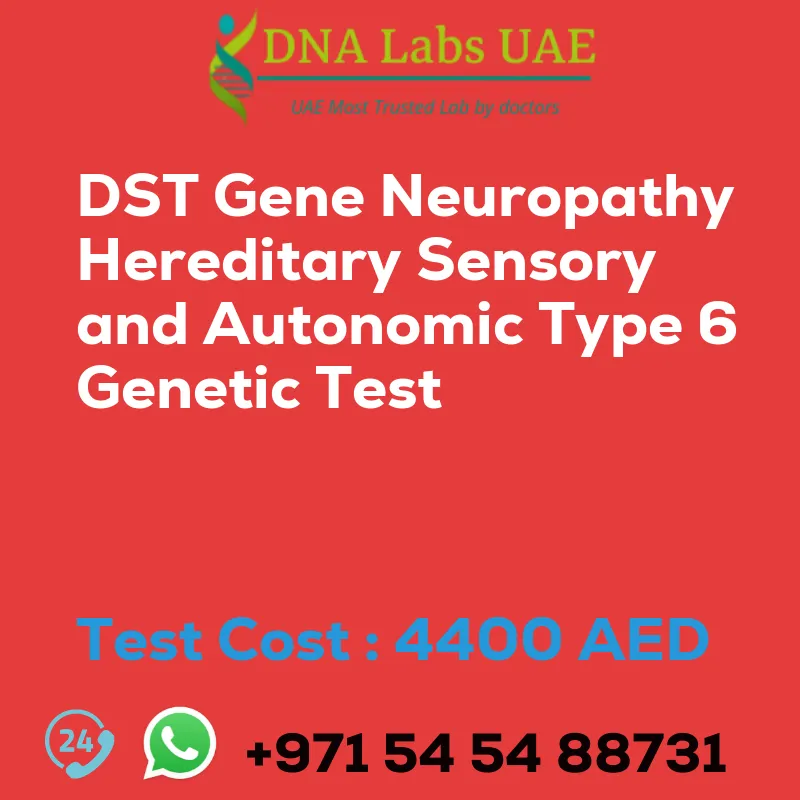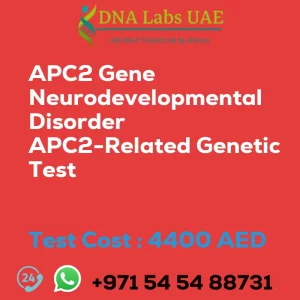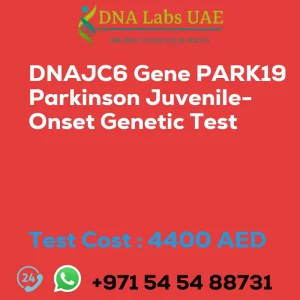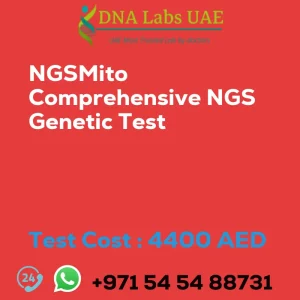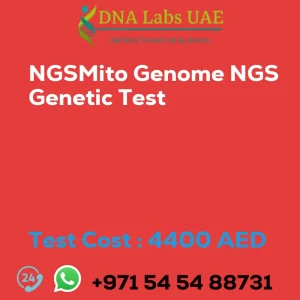DST Gene Neuropathy hereditary sensory and autonomic type 6 Genetic Test
Components: DST Gene Neuropathy hereditary sensory and autonomic type 6 Genetic Test
Price: 4400.0 AED
Sample Condition: Blood or Extracted DNA or One drop Blood on FTA Card
Report Delivery: 3 to 4 Weeks
Method: NGS Technology
Test type: Neurological Disorders
Doctor: Neurologist
Test Department: Genetics
Pre Test Information: Clinical History of Patient who is going for DST Gene Neuropathy, hereditary sensory and autonomic type 6 NGS Genetic DNA Test. A Genetic Counselling session to draw a pedigree chart of family members affected with DST Gene Neuropathy, hereditary sensory and autonomic type 6.
Test Details
DST gene neuropathy, also known as hereditary sensory and autonomic neuropathy type 6 (HSAN6), is a rare genetic disorder that affects the peripheral nerves. It is caused by mutations in the DST gene, which provides instructions for producing a protein called dystonin. Dystonin is involved in maintaining the structure and function of nerve cells, particularly in the peripheral nervous system. Mutations in the DST gene can disrupt the normal production or function of dystonin, leading to the development of HSAN6.
HSAN6 is characterized by progressive loss of sensation in the extremities, including the hands and feet. Individuals with this condition may experience numbness, tingling, and reduced ability to feel pain, temperature, and touch. Autonomic dysfunction, such as abnormal sweating and blood pressure regulation, may also be present.
To diagnose HSAN6, a genetic test called Next-Generation Sequencing (NGS) can be performed. NGS is a technique that allows for the simultaneous sequencing of multiple genes, including the DST gene, to identify any disease-causing mutations. This test can provide a definitive diagnosis for individuals suspected of having HSAN6.
Genetic testing for HSAN6 can be helpful in confirming the diagnosis, providing information on disease progression and prognosis, and guiding treatment and management strategies. However, it is important to note that there is currently no cure for HSAN6, and treatment primarily focuses on managing symptoms and improving quality of life.
If you or someone you know is suspected of having HSAN6, it is recommended to consult with a genetic counselor or healthcare professional who can provide more information and guidance regarding genetic testing and available treatment options.
| Test Name | DST Gene Neuropathy hereditary sensory and autonomic type 6 Genetic Test |
|---|---|
| Components | |
| Price | 4400.0 AED |
| Sample Condition | Blood or Extracted DNA or One drop Blood on FTA Card o |
| Report Delivery | 3 to 4 Weeks |
| Method | NGS Technology |
| Test type | Neurological Disorders |
| Doctor | Neurologist |
| Test Department: | Genetics |
| Pre Test Information | Clinical History of Patient who is going for DST Gene Neuropathy, hereditary sensory and autonomic type 6 NGS Genetic DNA Test A Genetic Counselling session to draw a pedigree chart of family members affected with DST Gene Neuropathy, hereditary sensory and autonomic type 6 |
| Test Details |
DST gene neuropathy, also known as hereditary sensory and autonomic neuropathy type 6 (HSAN6), is a rare genetic disorder that affects the peripheral nerves. It is caused by mutations in the DST gene, which provides instructions for producing a protein called dystonin. Dystonin is involved in maintaining the structure and function of nerve cells, particularly in the peripheral nervous system. Mutations in the DST gene can disrupt the normal production or function of dystonin, leading to the development of HSAN6. HSAN6 is characterized by progressive loss of sensation in the extremities, including the hands and feet. Individuals with this condition may experience numbness, tingling, and reduced ability to feel pain, temperature, and touch. Autonomic dysfunction, such as abnormal sweating and blood pressure regulation, may also be present. To diagnose HSAN6, a genetic test called Next-Generation Sequencing (NGS) can be performed. NGS is a technique that allows for the simultaneous sequencing of multiple genes, including the DST gene, to identify any disease-causing mutations. This test can provide a definitive diagnosis for individuals suspected of having HSAN6. Genetic testing for HSAN6 can be helpful in confirming the diagnosis, providing information on disease progression and prognosis, and guiding treatment and management strategies. However, it is important to note that there is currently no cure for HSAN6, and treatment primarily focuses on managing symptoms and improving quality of life. If you or someone you know is suspected of having HSAN6, it is recommended to consult with a genetic counselor or healthcare professional who can provide more information and guidance regarding genetic testing and available treatment options. |

